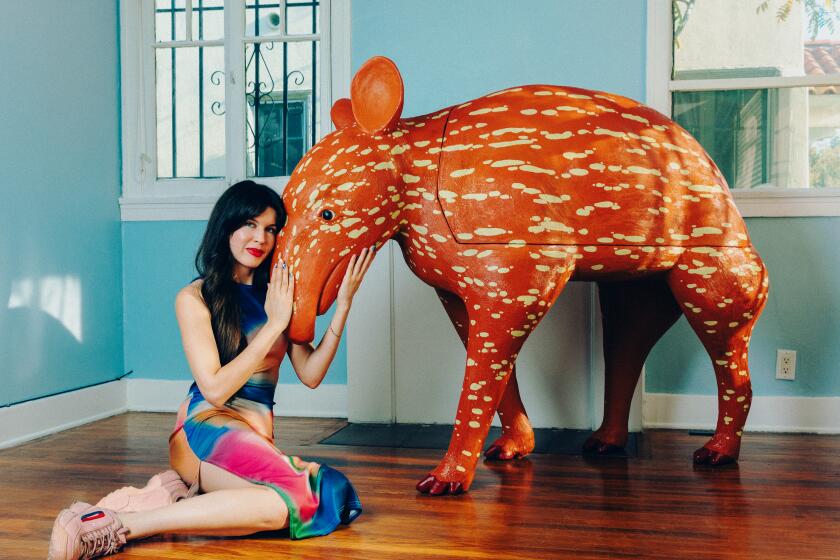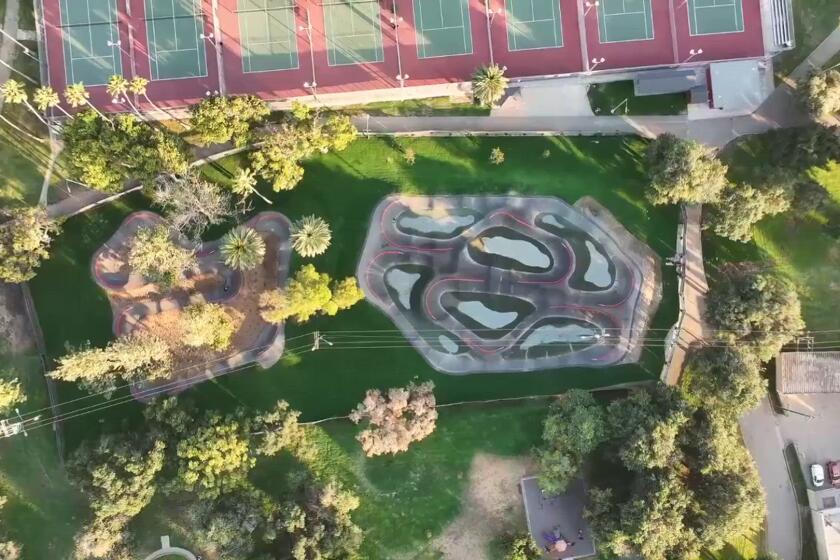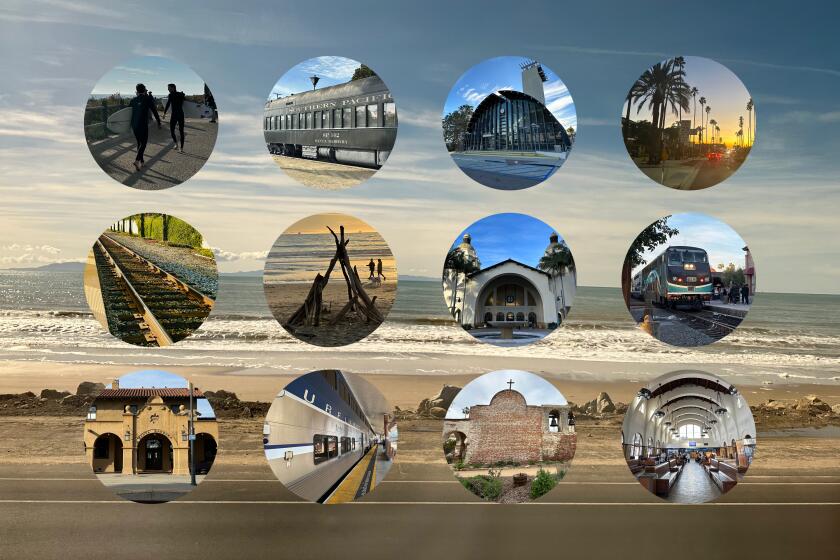Left to howl at the void
An empty chair threw its shadow across the meadow: a tall-backed, scuffed, swivel writing chair, looming in its emptiness. The writing chair was one that Edward Abbey used. And when you know that, you can understand how long and how broad the shadow was.
Only rarely, once every few generations or so, a figure rises to stand above others as inspirational guardian of America’s defining heritage -- its raw, open outdoors.
This month, 15 years after his death, friends and family gathered here in the hills south of Moab to celebrate the literature, the life, the ideals, the cockeyed spirit, the certain despair, the boundless joy and the soaring landscapes of just such a rascal, old “Cactus Ed” himself. In a loose sort of way, they called themselves the Clan of Abbey. A clan of the heart. A clan of the wild. A clan of backpackers, river runners, rabble-rousers and dauntless dreamers who believe that the high ground in America is the untrampled ground.
Abbey was a sometimes park ranger and itinerant fire lookout -- a Huck Finn and Henry Thoreau wrapped into one for the era in which America’s conservation movement sharpened its teeth. In 21 books, both fiction and nonfiction collections of evocative, ruminative, rollicking personal essays, his cause was wild nature. The wild West. Also, the wildness in each of us that defines our freedom and sustains our humility. His foes were industrialization, dominion, technology, sprawl and greed.
“I write,” Abbey said, “to entertain my friends and to exasperate our enemies.”
“I write,” Abbey said, “to make a difference.”
Organized by word of mouth, the tribute occurred at a place that Appalachian-born Abbey held to be sacred: these Utah hills. The mountains that rise in one direction. The otherworldly, treeless slick-rock maze that spills out in the other. And the Green and Colorado rivers that gouge canyonlands out of it all. This was the crazy topography that became both the chief character and the compelling setting for so much of his writing. Abbeyland.
In a grassy meadow at Pack Creek Ranch, a foothill retreat where he sometimes holed up to work, a property owned by one of his dearest friends, a ranch where one of his children was conceived, friends pondered his empty chair. A few sat in it, as if seeking some tangible connection to a man who, they all agreed, had changed their lives, not by a few degrees but by many.
“When he was alive, Ed didn’t need anybody to speak for him. He doesn’t now,” said Ken Sanders, a Salt Lake City bookseller, publisher, anti-establishment troublemaker and close friend of Abbey’s. “All you have to do is read the books!”
“I met Abbey in 1972,” recalled another of Abbey’s fellow travelers, Montana backpacking guide Howie Wolke. “I picked up his book ‘Desert Solitaire.’ It was sitting on a coffee table and I started reading. Until then, I thought I was crazy. Then I found someone else, this man, who felt about the world and wilderness exactly the way I did.”
At the core of this weekend’s rendezvous were a dozen people like these whose lives, in one way or another, intersected Abbey’s -- a graying lot now with creaky knees, thinning hair and weather-creased faces. Some had roamed these vistas with Abbey and now talked cheerfully about the lapse in the “statute of limitations” for their seditions.
On Saturday, these personal friends and Abbey’s widow, Clarke, were joined by 200 other devotees whose connections to Abbey were purely literary, and hardly less intense. They traveled from throughout the West to gather around the empty chair and listen to a night of reminiscences -- and, in no small way, to ponder their own place in the eroding treasure of the West’s open spaces.
“The evening,” as Abbey wrote about a similar moment years ago in these reaches, “gave way to night, a dense violet solution of starlight and darkness mixed with energy.” A brisk wind carried chilly greetings from the snowcapped peaks of the nearby La Sals; a bonfire shot sparks toward galaxies that didn’t seem quite so far away either.
They thundered, they swore blue streaks and they sang, Abbey’s friends. Novelist John Nichols read from his private, argumentative and ultimately tender correspondence with Abbey. After hearing that Nichols suffered a heart attack, Abbey hurried off a letter: “Take care of yourself. DON’T CHOP WOOD. Get your new wife a new ax.”
Dave Foreman, the Abbey pal who became one of the most confrontational, and quotable, conservation agitators of the era, recalled being inspired by Abbey long before he’d ever heard of Abbey, or anyone like him. Foreman was 10, playing outside his home in Albuquerque, when he saw an astonishing sight. Black smoke began pouring from one of the dormant cinder-cones on the edge of town. An eruption! Mother Nature on the loose. Only decades later did he learn that the smoke came from castoff tires that college student Abbey set afire as a prank.
“He taught me the meaning of self-willed land,” said Foreman, a co-founder of EarthFirst! who now oversees the Rewilding Institute, a conservation think tank.
Others read from Abbey’s works, or recalled some of his many aphorisms, such as: “If you don’t stand for something, you stand for nothing.” Ken Sleight, the backcountry guide and owner of Pack Creek, as well as the archetype for “Seldom Seen Smith” in Abbey’s romping novel “The Monkey Wrench Gang,” stood before the crowd bandaged from a tangle with a horse. Wistfully he recalled the years when the tap-tap-tap of Abbey’s typewriter could be heard in the meadows here.
The evening had its sharply political edge. Abbey would have been 77 now, and those in attendance knew for a certainty that he would have been as angry as ever, if not more so, about today’s public lands development in the West. Although ill and unable to attend, the writer’s longtime editor at Henry Holt, Jack Macrae, sent a message: “Dammit, where are you Ed? This is getting serious.”
Primary sponsor of the weekend was the Glen Canyon Institute, a nonprofit group that seeks to drain Lake Powell and restore Glen Canyon -- a cause dear to Abbey’s heart. Lights were forbidden, or even flash photography, so as the night proceeded the audience found itself enveloped in the isolation of darkness. Expressions on faces could not be shared. Whispers were carried off by the wind. Shivers from the cold were endured in private. Everyone in attendance wound up alone with Abbey.
A generation ago, Abbey’s uncompromising defense of nature and open spaces inspired some in the environmental movement to threats -- and acts -- of vandalism against billboards, bulldozers and other symbols of development. His most famous novel gave this a name, “monkey wrenching.” Correspondingly, his enemies have sought to marginalize him as a “terrorist.”
Abbey long ago prepared his defense.
Jack Loeffler, a cultural historian, radio producer and perhaps Abbey’s closest friend over the years, tape recorded the writer’s thoughts on the subject during a desert camping trip on New Year’s Day, 1983. Loeffler played a portion of the encounter for the audience and once again, Abbey’s basso drawl could be heard in these hills.
Just as he would defend his family, Abbey said he felt obliged “as a last resort” to defend the land he loved against pillage. “If all political means to save it have failed,” he said, “I personally feel that sabotage is morally justifiable. At least if it does any good. If it will help. If it will only help you to feel good.”
On the tape, Loeffler asked if there was a difference between sabotage and terrorism. Abbey replied, “The distinction seems quite clear and simple to me. Sabotage is an act of force against property or machinery in which life is not endangered, or should not be. Terrorism, on the other hand, is violence against living things, human beings and other living things.”
At this gathering, though, the Clan of Abbey ranged mostly beyond the predictable flatlands of environmentalist argument. To know him in person or to know him in his ruminative books is to understand that Abbey’s lasting appeal lay as much with his flaws and contradictions as with his bombast and certainties -- a man who could devour a bloody steak while lampooning a cattleman, smiling all the while.
In this way, he brought humanism to conservation, and that, along with his lurid, rangy prose, gave pleasure and stirred passions for countless thousands of readers who came to regard Abbey as their personal guide to the outdoors -- a lanky, lusty, droll, irrepressible pal with a spade beard who gave off great galvanic sparks of exuberance wherever he traveled. “Us nature mystics got to stick together,” Abbey would mumble.
“He really lived a handcrafted life,” said Loeffler.
Often forgotten by those who carry his torch today is the ebullient spirit that Abbey believed to be necessary in the crusade for wilderness. It was not enough to be a scold, one must live too -- indeed, live it up, out here with the rocks and the rattlesnakes and whitewater rapids. For all his stridency, his ideas and his exhortations usually had a way of circling back to the heart.
A message read to the gathering made the point. University of Utah professor emerita Florence R. Shepard recalled taking students on a field trip to Arches National Park near Moab in 1976. Abbey was their guide, and concluded his tour saying that he hoped these young people loved this place as much as he did. “In loving it,” he continued, “we are obliged to defend it as best we can.” He added an admonishment: “However devoted, though, we must be to the conservation cause, I do not believe that any of us should give it all of our time, effort or heart. Give what you can. But do not burn yourself out or break your own hearts. Leave your dens, abandon your cars and walk out into the great mountains, the deserts, the forests, along the seashores. Those treasures still belong to all of us. Enjoy them to the full. Stretch your legs. Expand your lungs. Enliven your hearts. And we will outlast the greedy swine who want to destroy it all in the name of what they call growth. God bless America. Let’s save some of it.”
“The Cheshire Cat has disappeared,” said Bob Lippman, a river runner, activist and environmental lawyer. “But his great and powerful and joyous grin remains.”
Foreman wound up the evening by summoning people to their feet. Turn your eyes to the sky and raise your voices, he said. Under the glint of stars, the Clan of Abbey stood and howled like wolves.
Sign up for The Wild
We’ll help you find the best places to hike, bike and run, as well as the perfect silent spots for meditation and yoga.
You may occasionally receive promotional content from the Los Angeles Times.



